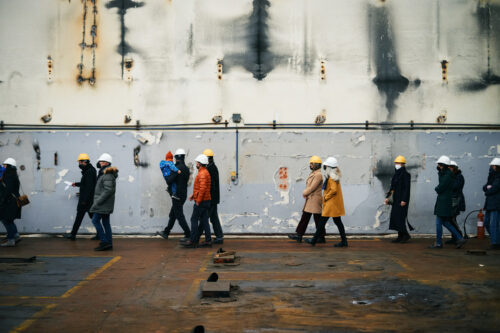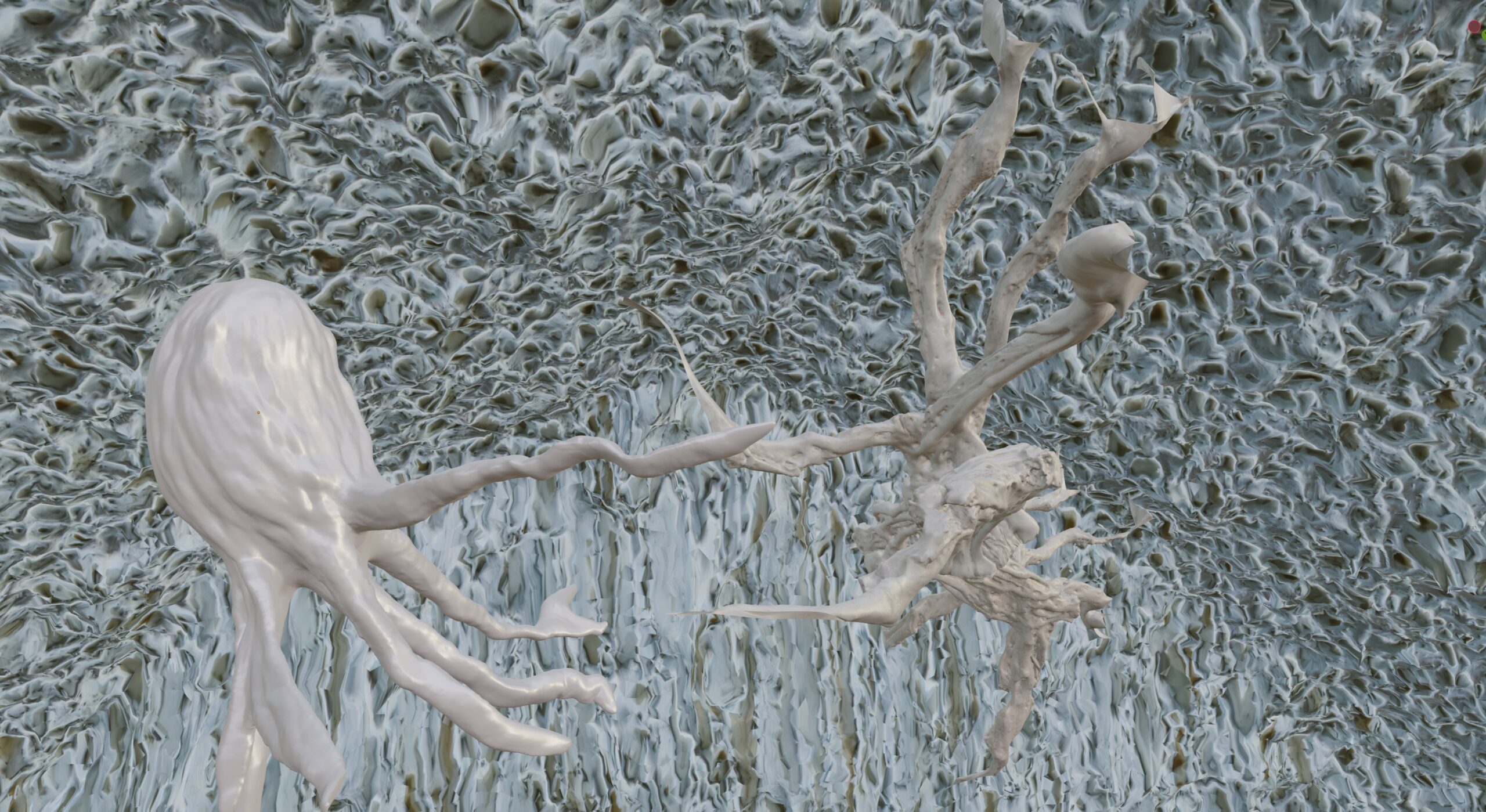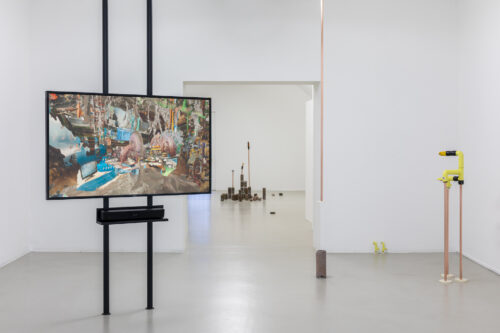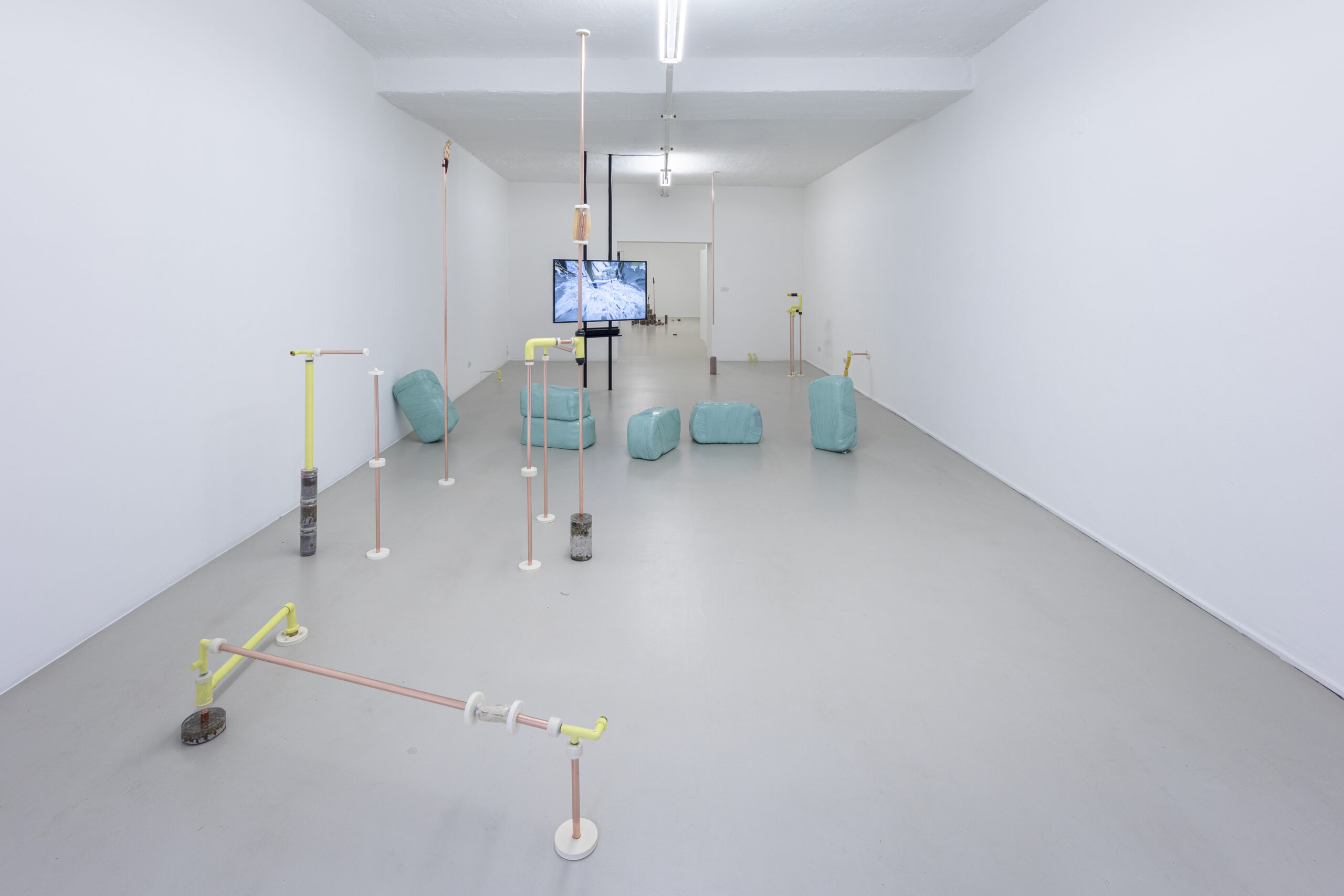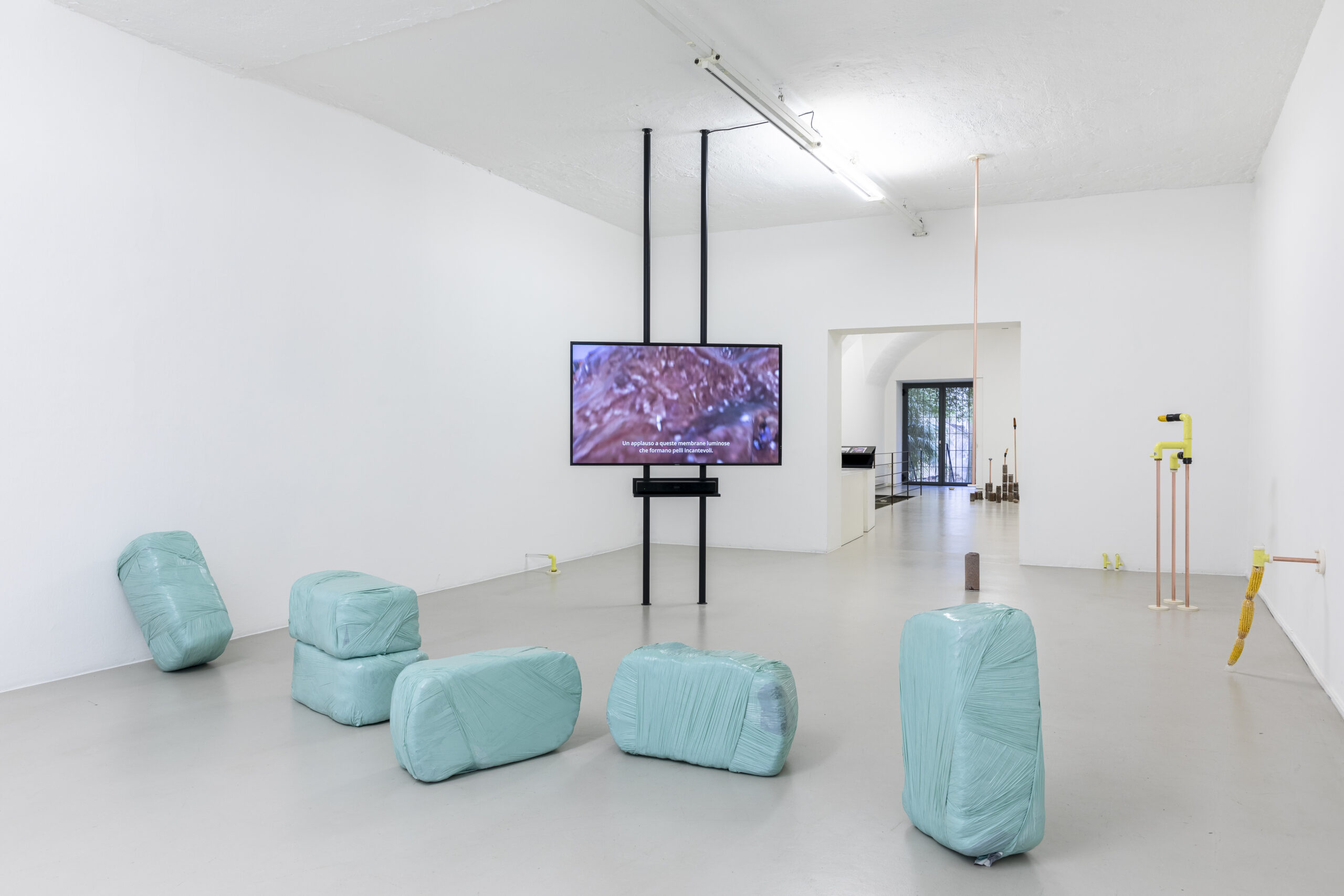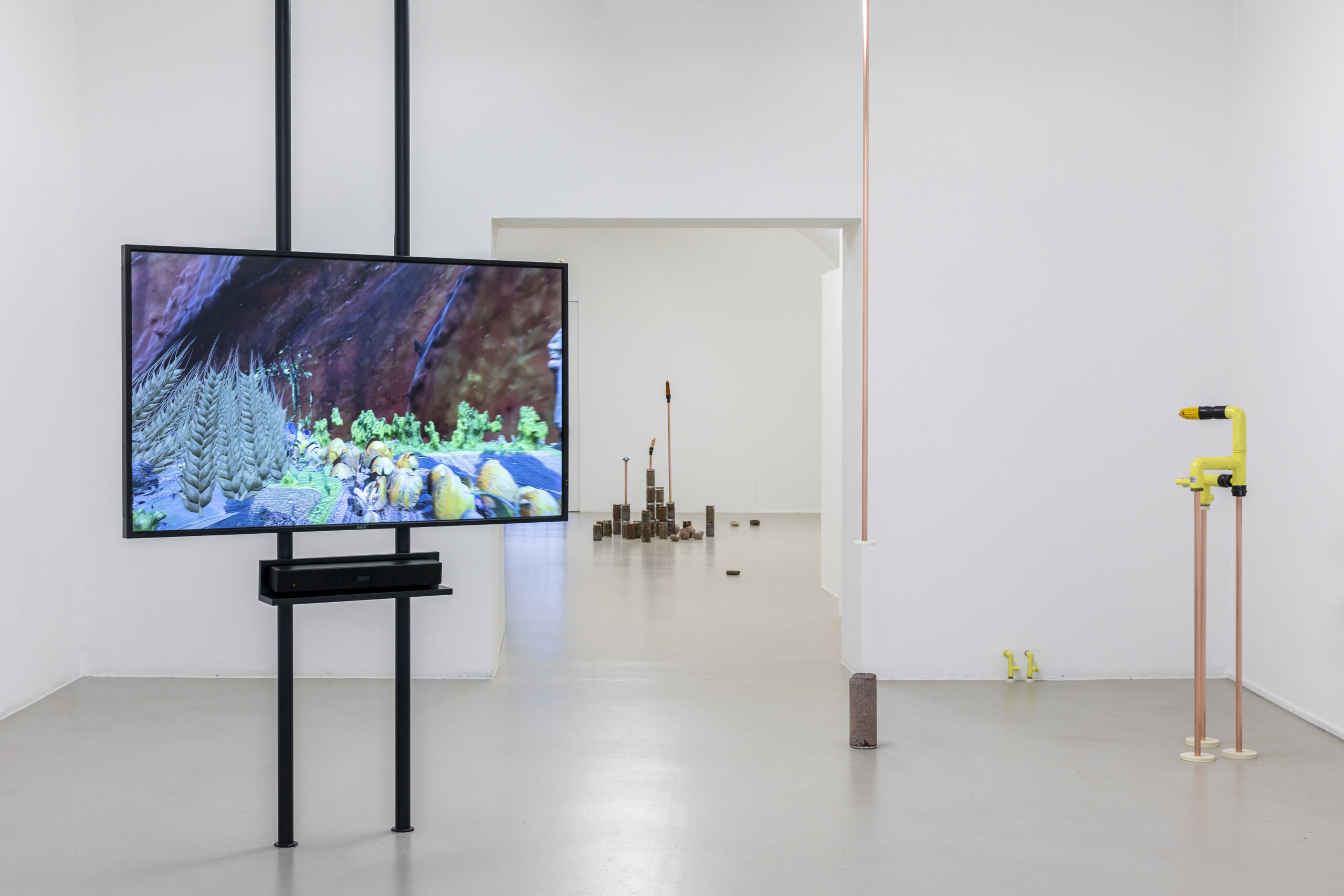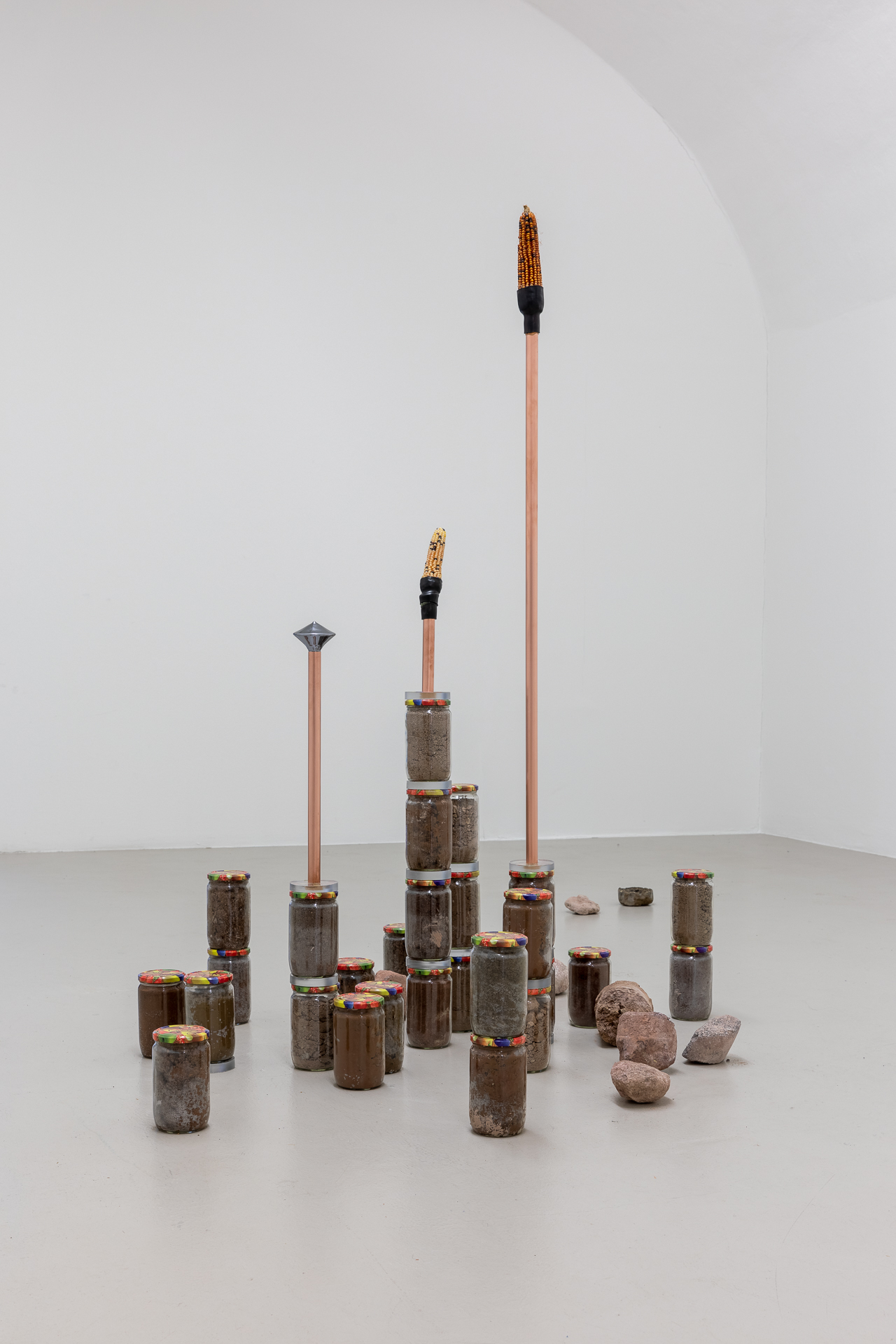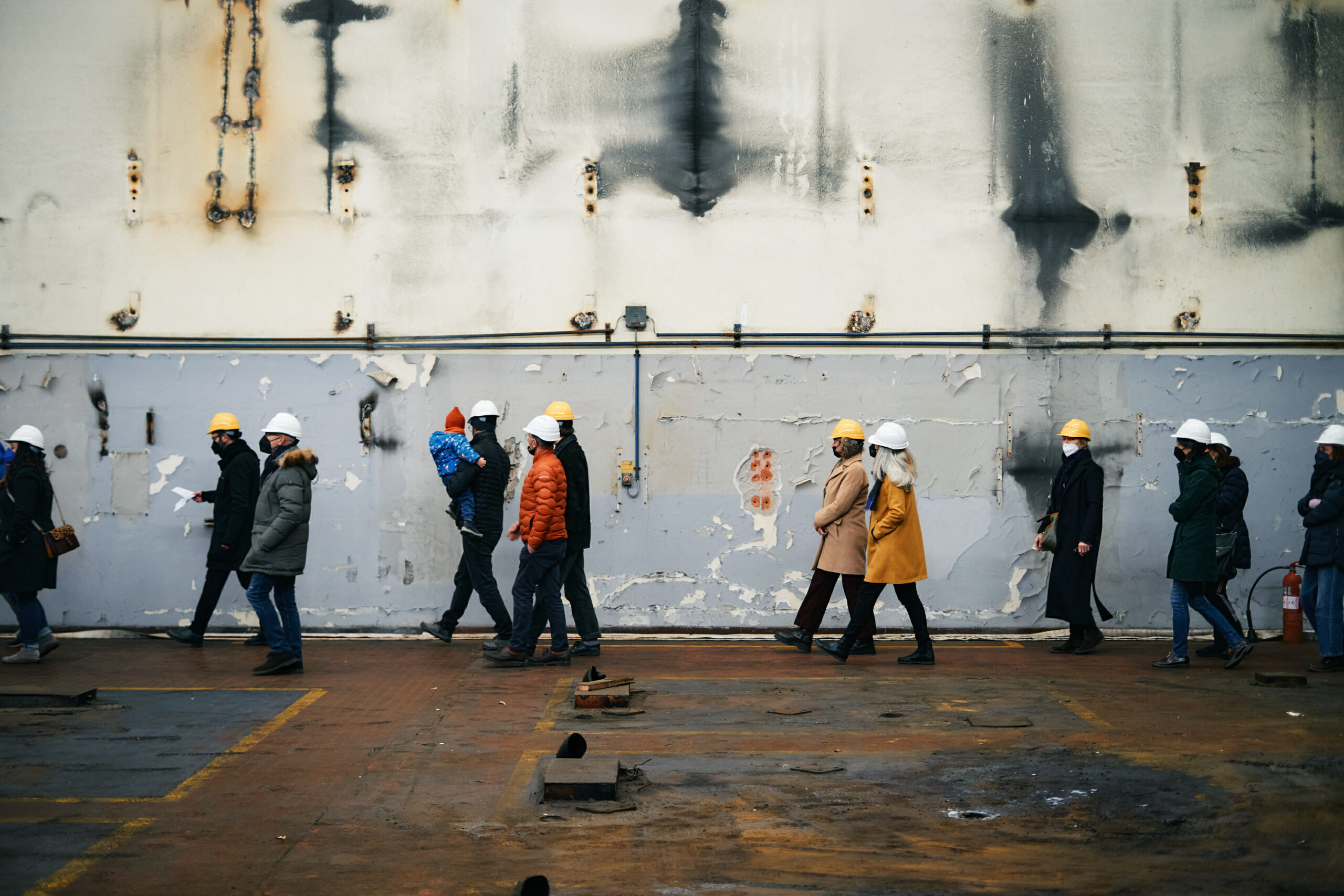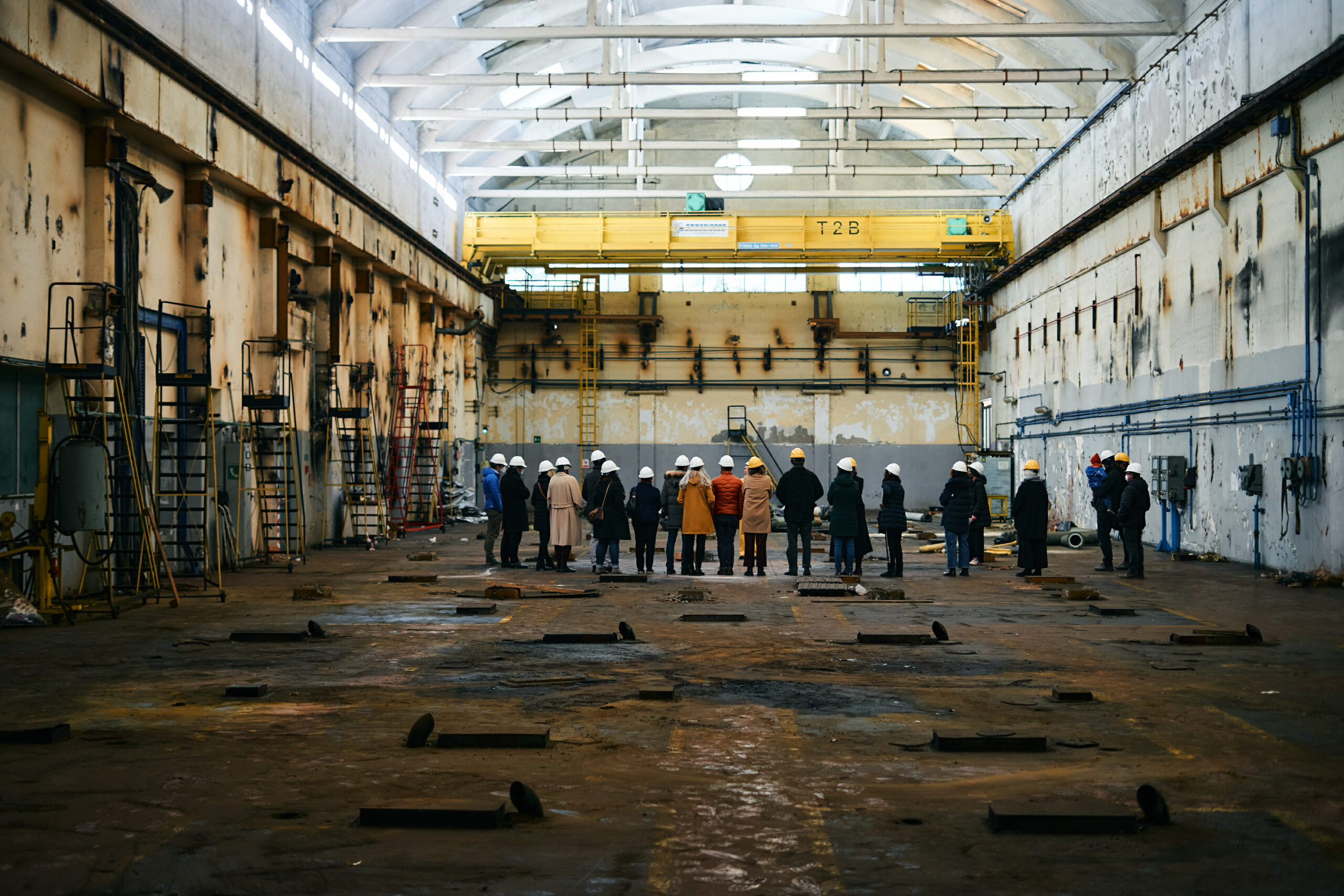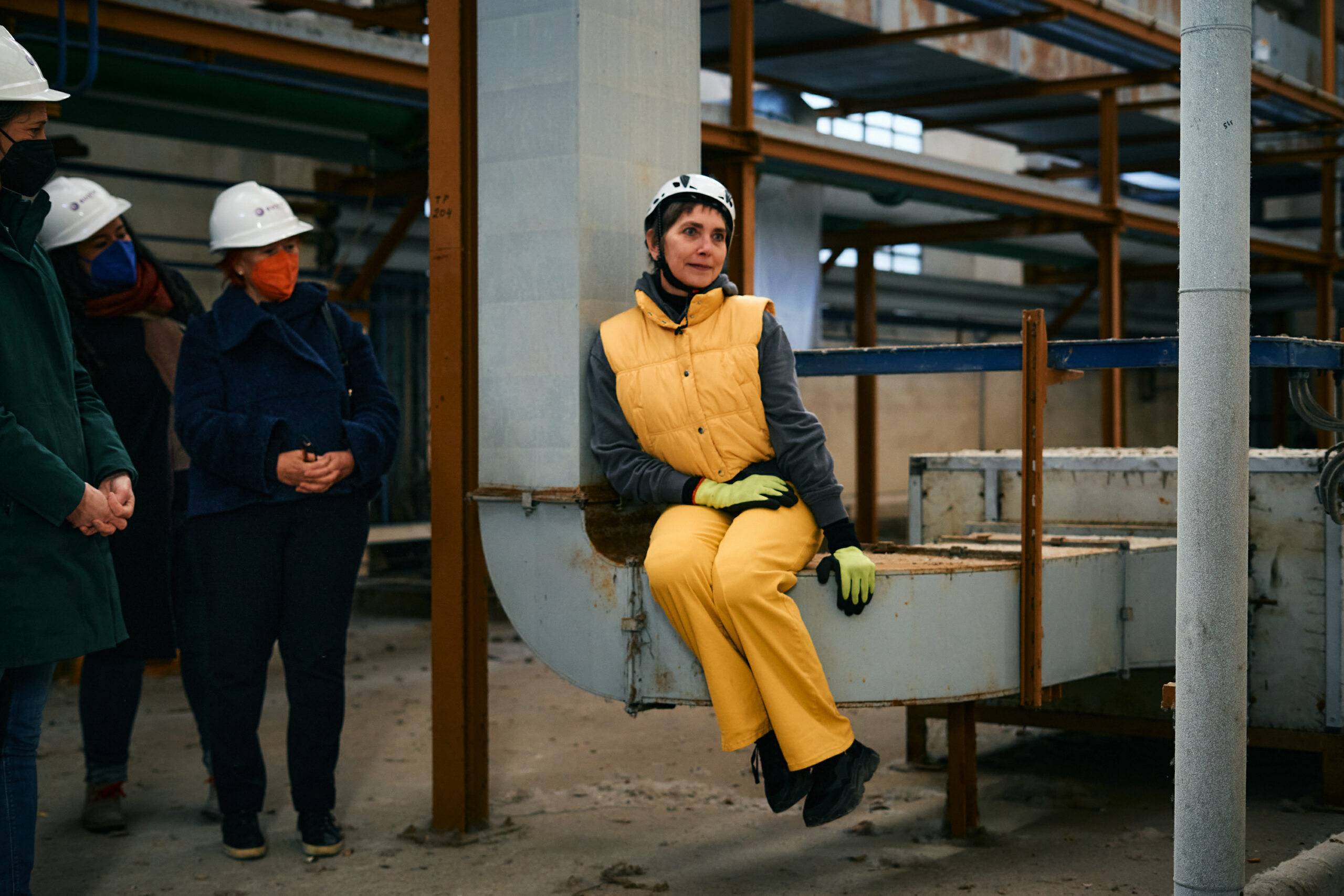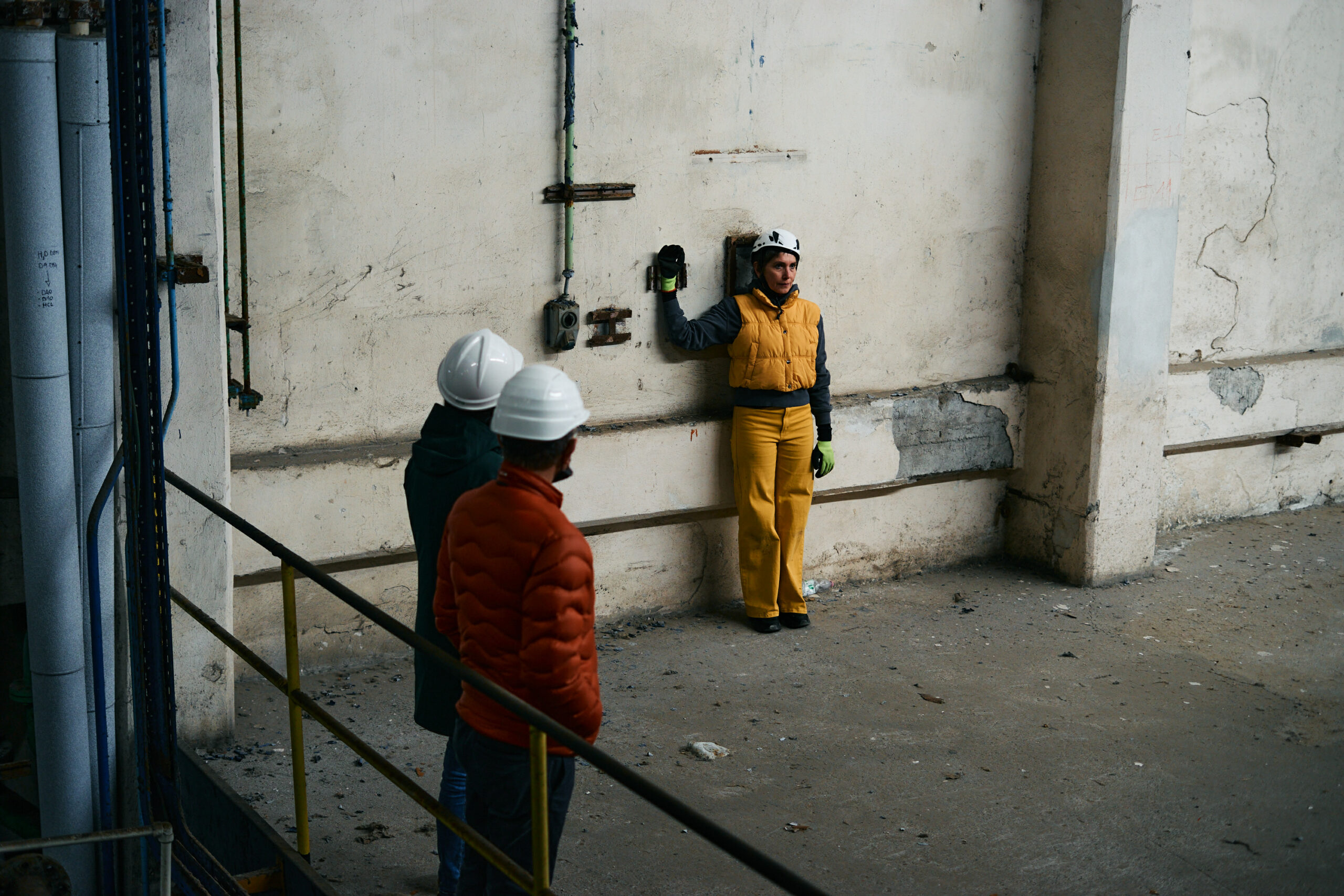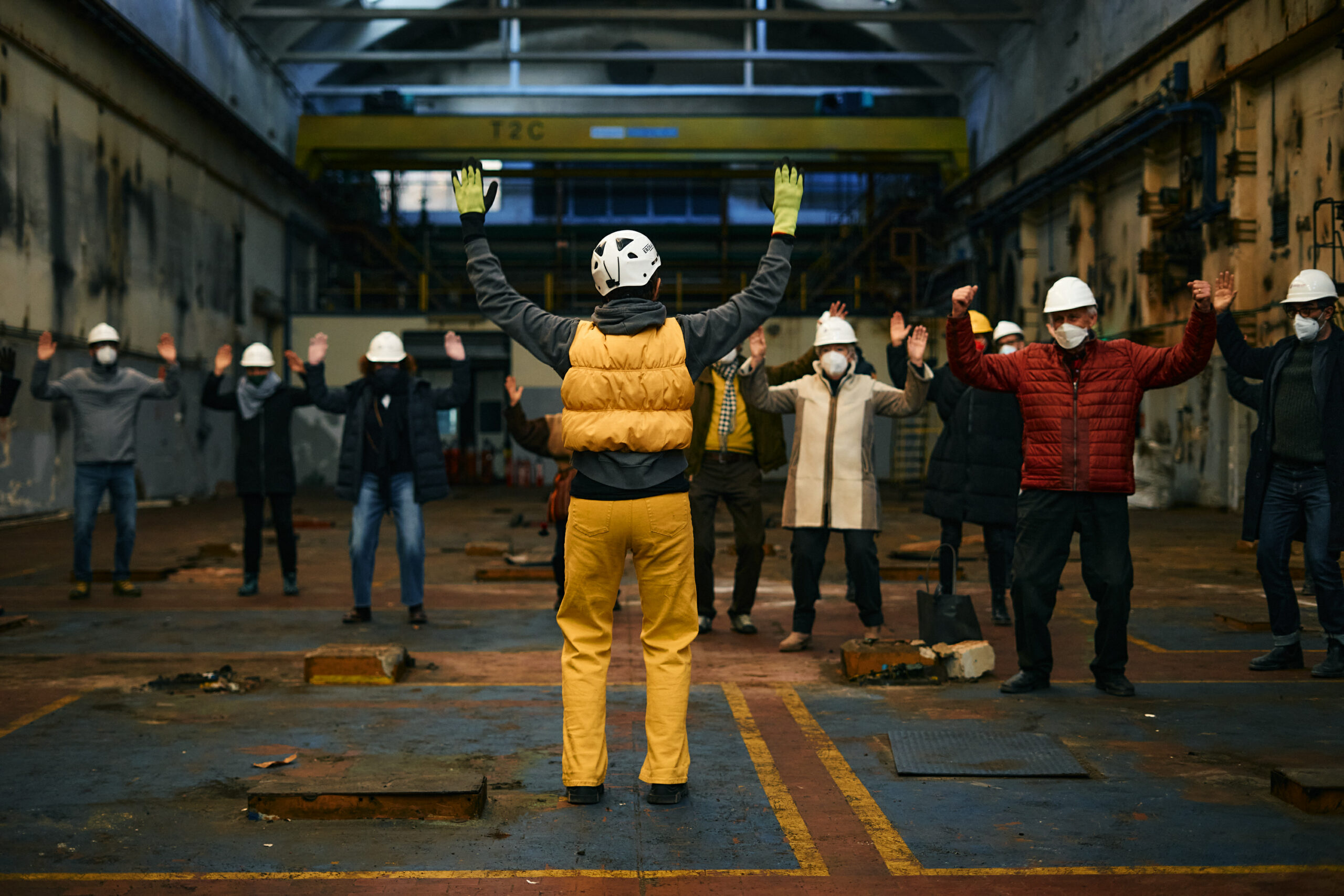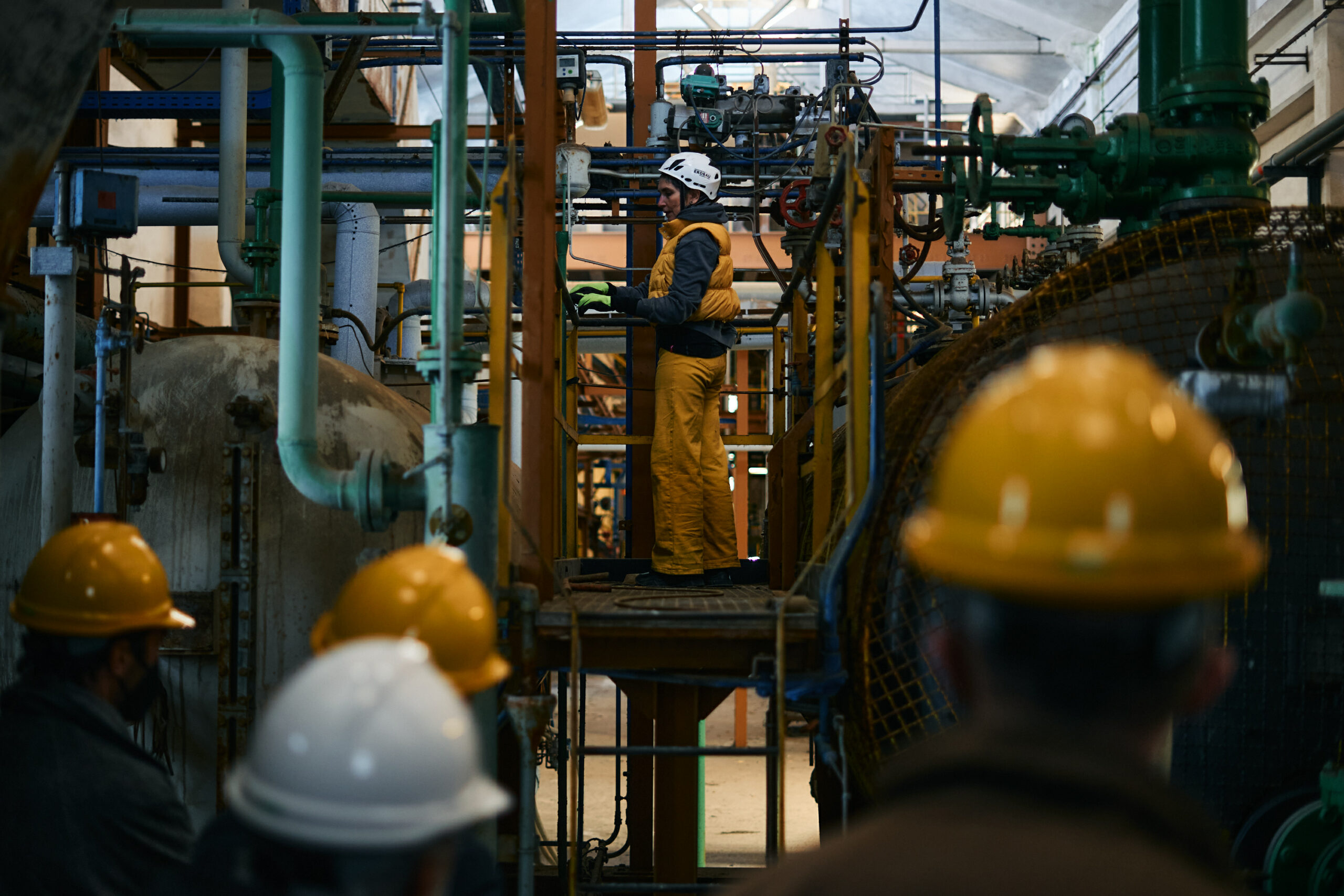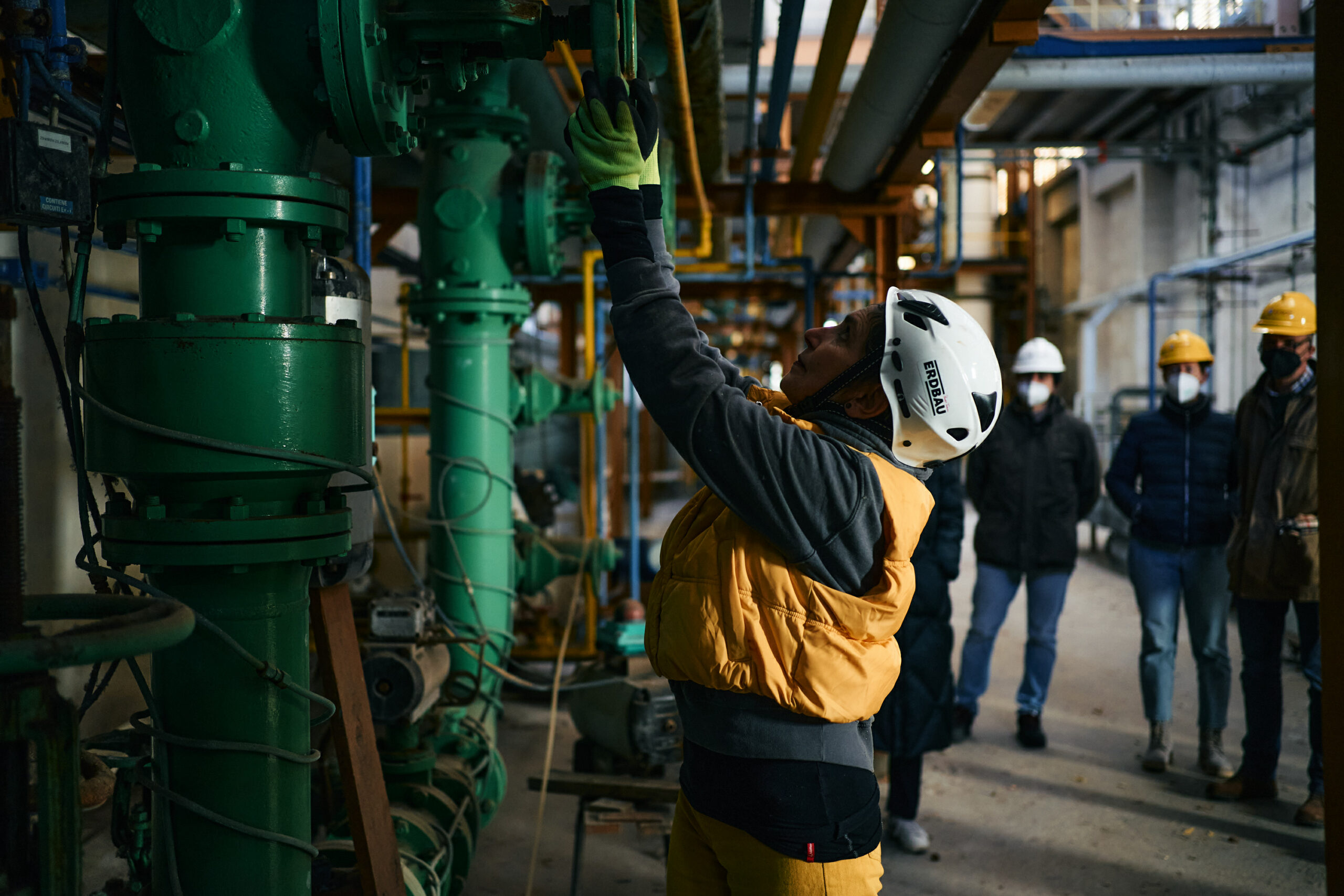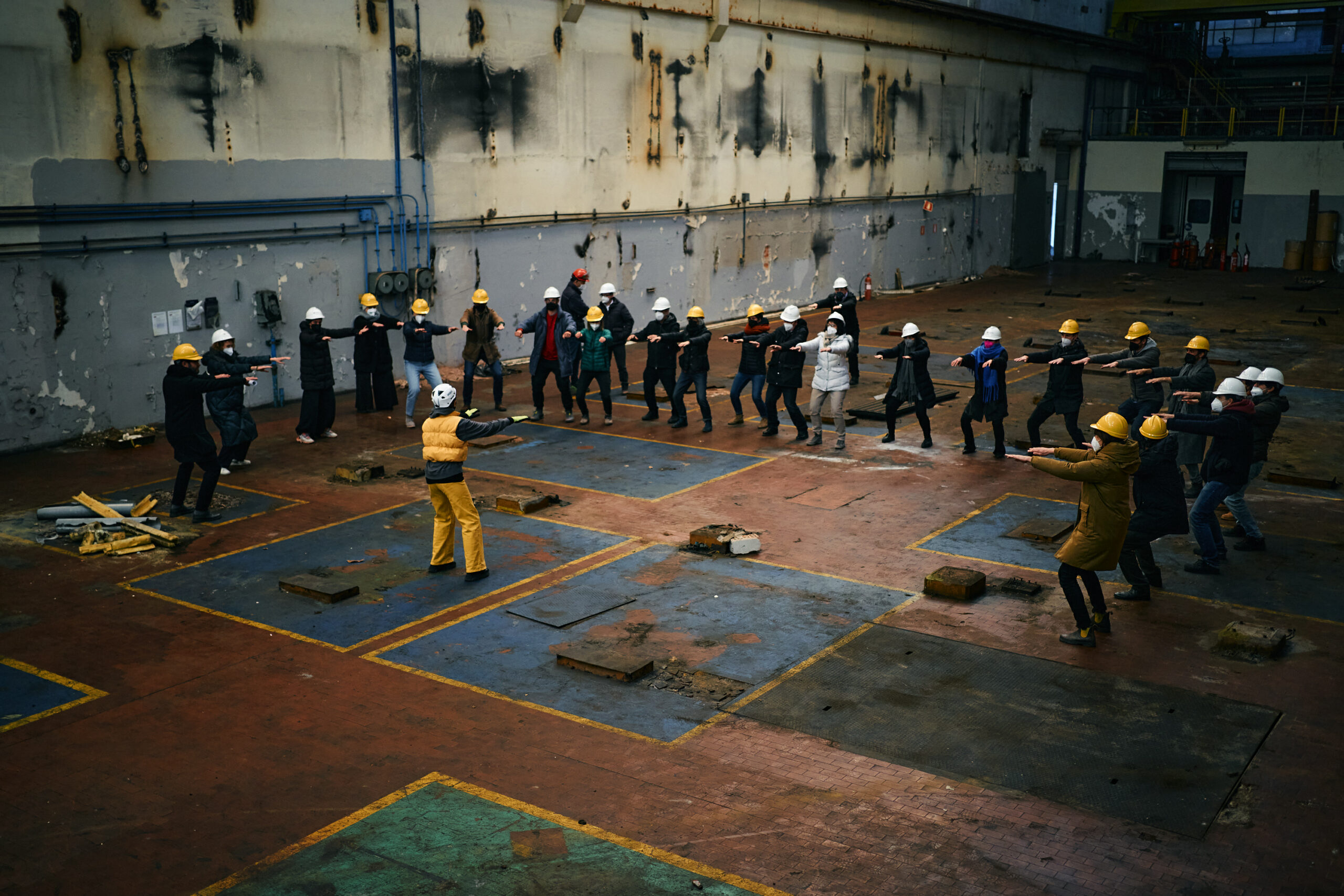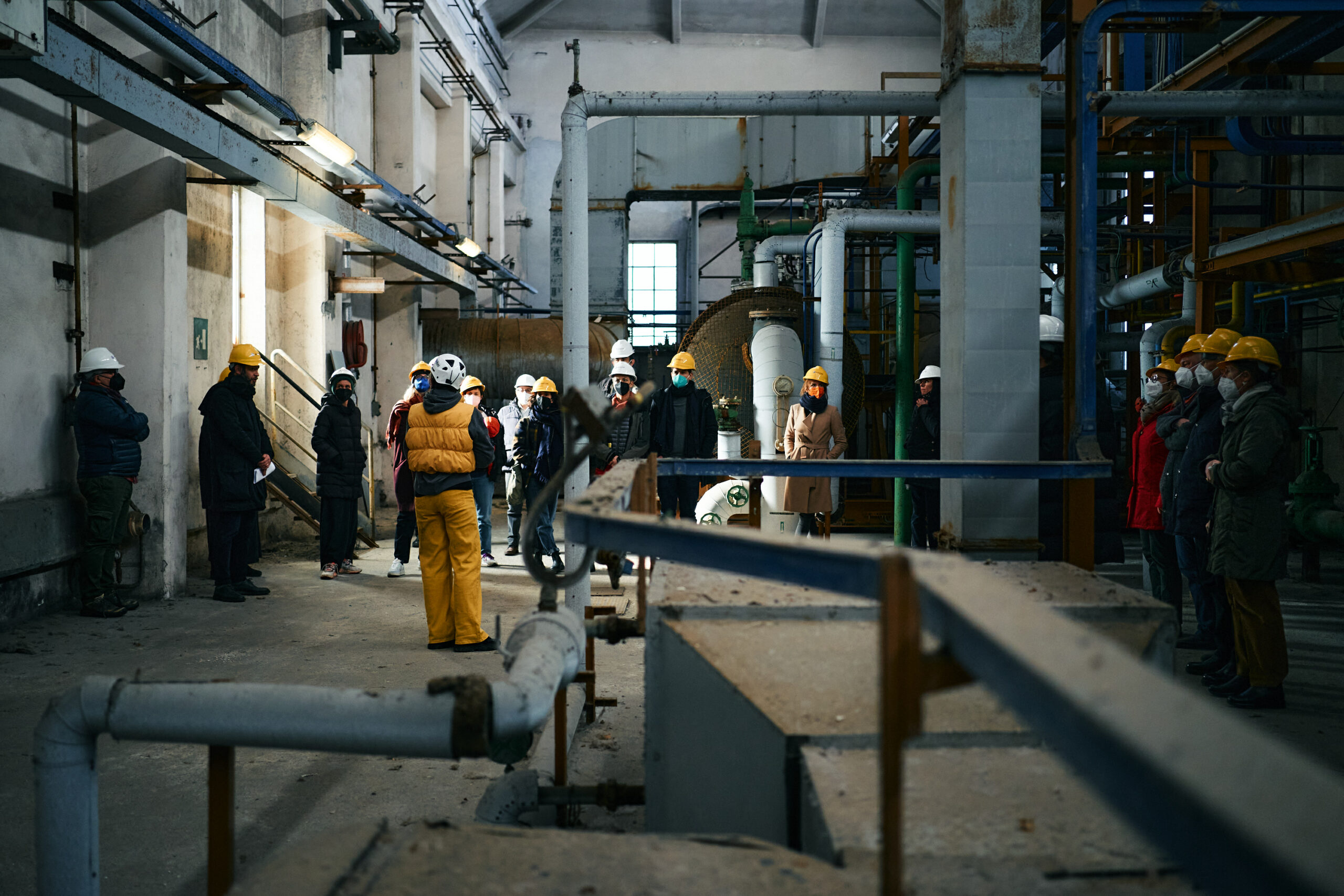PLANT PLANT
01.01.2021 – 12.02.2022
ar/ge kunst und BAU präsentieren das Projekt Plant Plant der Künstlerin Katrin Hornek, das aus einer Recherche im Rahmen der fünften Ausgabe des One Year-Long Research Project von ar/ge kunst und der BAU Residency 2020/21 hervorgeht.
Plant Plant besteht aus Katrin Horneks Einzelausstellung sowie einer choreografierten Intervention in der ehemaligen Montecatini Fabrik mit der Performerin Sabina Holzer, der Factory Walk.
Factory Walk
Choreographierte Intervention von Sabina Holzer
Samstag, 05.02.2022, 10:00 – 15:00
4 Rundgänge à 40 Minuten, 15 Personen pro Rundgang
Ex-Montecatini, Via Nazionale 59, 39012 Sinich
Der Factory Walk, choreografiert von Sabina Holzer, lädt zu einer körperlichen Erfahrung mit der Architektur und den Anlagen der ehemaligen Montecatini Fabrik in Sinich ein. Hast du jemals darüber nachgedacht, dass Teile deines Körpers fabriziert sind? Sowohl die Ausstellung als auch der Factory Walk nutzen das chemische Element Stickstoff als Prisma, um die Geschichte der Düngemittelproduktion mit ihren unmittelbaren und planetarischen Verflechtungen zu betrachten. Auf Einladung von Katrin Hornek, erweitert die Performerin Sabina Holzer im Factory Walk die Recherche von Plant Plant und verschränkt die Boden- und die molekulare Perspektive mit der physischen Begegnung des Ortes, um unsere Sinne und Vorstellungskraft zu öffnen. Es werden Ähnlichkeiten zwischen organischer und anorganischer Materie aufgezeigt und das Natürliche, Kulturelle und Industrielle werden als miteinander verwobene Körper betrachtet, die wir teilen und deren Teil wir sind.
In der Ausstellung in der ar/ge kunst in Bozen (27.11.2021 – 12.02.2022) sind ein neuer Film und eine Reihe von Skulpturen zu sehen. Hornek stützt ihre Recherche auf den Ort der ehemaligen Montecatini Fabrik in Sinich, Meran, einer 1924 von Benito Mussolini gegründeten Produktionsstätte für Ammoniak – ein Grundbestandteil von Düngemitteln und Sprengstoffen. Zum Zeitpunkt ihrer Errichtung war diese Fabrik die zweitgrößte Europas nach der deutschen IG Farben und Teil eines strengen Industrialisierungsprogramms Südtirols sowie auch der Versorgungssicherheit Italiens.
Mit einem spekulativen Ansatz spürt Hornek den technologischen Entwicklungen nach, die 1911 zur Erfindung des synthetischen Stickstoffs führten, und verschränkt sie mit den Geschichten und Geschicken der Fabrikarbeiter*innen –in den 1920er- ebenso wie in den 1970er-Jahren. Durch die Entscheidung, sowohl aus einer molekularen Perspektive als auch aus der des Bodens heraus zu erzählen, wird die ansonsten unsichtbare Reziprozität und Kontinuität zwischen menschlichen, landschaftlichen, tierischen und technischen Körpern fassbar.
„Wir schicken diese Düngemittel los. Aus der Atmosphäre in die Fabriken. Aus den Fabriken auf die Felder. Vom Boden in die Pflanzen. Von den Pflanzen in die menschlichen Körper. In die Körper der Nutztiere. So nähren wir Wachstum, nähren wir Pflanzen, bauen wir Zellen auf. Pflanzenzellen, Tierzellen, ihre Zellen. Macht eh keinen Unterschied.
So werden alle Proteine geschaffen, alle Hormone, die DNA für die Weltbevölkerungen. “, erzählt die Stimme im Film. Plant Plant verfolgt diese Wege bis hin zur heutigen Verwendung von Ammoniak und den Folgen seiner Herstellung, die der Expansion der chemischen Industrie einen fruchtbaren Boden bereiten.
Öffentliches Programm in der ar/ge kunst, kuratiert von BAU:
Savoir-Vivre Boden Workshop, 27. November, 11:00 – 13:30 Uhr
Reading Rivers, 1. Dezember, 17:00 – 19:00 Uhr
Credits:
PLANT PLANT ist ein Projekt von Katrin Hornek
Kuratiert von: Emanuele Guidi (ar/ge kunst) und BAU
Die Ausstellung wird produziert in Zusammenarbeit mit:
Sabina Holzer (Text/Video, choreografierte Intervention), Bruno Szenk (technische Assistenz, Skulptur), TE-R (3D-Modellierung und Animation, Ton), Rachel Müller (Stimme).
Mit besonderem Dank an REM-TEC, Sinich- Meran.
Dieses Projekt wird produziert in Zusammenarbeit mit Phileas – A Fund for Contemporary Art
Mit der Unterstützung von:
WWTF – Wiener Wissenschafts-, Forschungs- und Technologiefonds
BMKÖS – Bundesministerium für Kunst, Kultur, öffentlichen Dienst und Sport
Autonome Provinz Bozen Südtirol, Deutsche Kultur
PLANT PLANT
01.01.2021 – 12.02.2022
ar/ge kunst and BAU present Plant Plant, a project by artist Katrin Hornek emerging from her research in South Tyrol between 2020 and 2021 within the context of ar/ge kunst’s One Year-Long Research Project/Fifth edition and the BAU Residency.
Katrin Hornek’s Plant Plant consists of her solo exhibition and a choreographed intervention at the former Montecatini factory with performer Sabina Holzer, the Factory Walk.
Factory Walk
Choreographed Intervention by Sabina Holzer
Saturday, 05.02.2022, 10:00 – 15:00
4 sessions of 40 minutes, each session with 15 people
Ex-Montecatini, via Nazionale 59, 39012 Sinigo
Factory Walk, coreographed by Sabina Holzer will introduce you to a bodily experience within the architecture and equipment of the former Montecatini Factory in Sinigo, Merano. Have you ever thought on parts of your body being manufactured? Both, the exhibition and the Factory walk situate the chemical element of nitrogen as the prism through which to look at the history of fertilizer production with its immediate and planetary entanglements. In response to Katrin Hornek’s invitation, the performer Sabina Holzer expands from the research of Plant Plant and entangles the molecular and earthly perspectives with the physical encounter of the site to open the senses and the imagination. The Factory Walk will trace the resemblances between organic and inorganic matter, between the natural, cultural and industrial as interrelated bodies we share and of which we are a part.
The exhibition at ar/ge kunst in Bolzano (27.11.2021 – 12.02.2022) presents a new film and a series of sculptures. Hornek roots her research into the site of the former Montecatini factory in Sinigo, Merano, a manufacturing plant established by Benito Mussolini in 1924 to produce ammonia — a basic element in fertilizers and explosives. When built, this factory was the second largest in Europe after Germany’s IG Farben and was part of a stringent program of South Tyrolean industrialization and self-sufficiency for Italy.
Using a speculative approach, Hornek follows the technological developments that led to the invention of synthetically fixed nitrogen in 1911, intertwining it with the chronicles and vicissitudes of the factory workers — both in the 1920s and the 1970s. The choice of assuming both a molecular and earthly perspective to narrate this history makes graspable the otherwise invisible reciprocity and continuity across human-, land-, animal- and techno-bodies. ‘We make these fertilizers travel. From the atmosphere into the factories. From the factories into the fields. From the soil into the plants. From the plants into the human bodies. Into the bodies of livestock…Building all proteins, all hormones, all DNA for the world’s populations’ the voice-over in the film narrates. Accordingly, Plant Plant unfolds along this trajectory to arrive at the present-day use of ammonia and the consequences of its production, which provide fertile ground for the expansion of the chemicals industry.
Public Programme at ar/ge kunst, curated by BAU:
Savoir-Vivre Workshop on Soil: 27 November, 11am – 1:30pm
Reading Rivers: 1 December, 5pm – 7pm
Credits:
PLANT PLANT is project by Katrin Hornek
Curated by: Emanuele Guidi (ar/ge kunst) and BAU
The exhibition was produced in collaboration with:
Sabina Holzer (Text/Video, choreographed Intervention), Bruno Szenk (technical assistance sculpture ), TE-R (3D Modeling and Animation, Sound), Rachel Müller (Voice).
A special thanks to: REM-TEC, Sinigo – Merano
This exhibition was produced in collaboration with Phileas – A Fund for Contemporary Art
With the support of:
WWTF – Wiener Wissenschafts-, Forschungs- und Technologiefonds
BMKÖS – Bundesministerium für Kunst, Kultur, öffentlichen Dienst und Sport
Provincia Autonoma di Bolzano Alto Adige
Fondazione Cassa di Risparmio, Sudtirolo
Comune di Bolzano, Ripartizione Cultura
Dr Schär
PLANT PLANT
01.01.2021 – 12.02.2022
ar/ge kunst e BAU presentano Plant Plant, un progetto dell’artista Katrin Hornek che emerge dalla sua ricerca in Alto Adige tra il 2020 e il 2021 nel contesto del One Year-Long Research Project/Fifth edition di ar/ge kunst e della BAU Residency.
Plant Plant si articola nella mostra personale di Katrin Hornek e nell’intervento coreografico, la Factory Walk, alla ex fabbrica Montecatini con la performer Sabina Holzer.
Factory Walk
Intervento coreografico di Sabina Holzer
Sabato, 05.02.2022, 10:00 – 15:00
4 sessioni da 40 minuti, 15 persone a sessione
Ex-Montecatini, via Nazionale 59, 39012 Sinigo
Factory Walk, coreografato da Sabina Holzer, vi introdurrà ad un’esperienza corporea all’interno dell’architettura e le attrezzature
della ex fabbrica Montecatini a Sinigo, Merano. Hai mai pensato che parti del tuo corpo fossero fabbricate? La mostra Plant Plant e la Factory Walk situano l’elemento chimico dell’azoto come prisma attraverso cui guardare la storia della produzione di fertilizzanti e le sue correlazioni più immediate così come su scala planetaria. Su invito di Katrin Hornek la performer Sabina Holzer espande la ricerca di Plant Plant e intreccia il suo doppio punto di vista, molecolare e terrestre, con l’incontro fisico con il sito per aprire i sensi e l’immaginazione. Rintraccerà le corrispondenze tra la materia organica e inorganica, tra il naturale, il culturale e l’industriale come corpi interconnessi, che condividiamo e di cui siamo parte.
La mostra Plant Plant (27.11.2021 – 12.02.2022) presso ar/ge kunst di Bolzano presenta un nuovo film e una serie di sculture. Hornek radica la sua ricerca nel sito dell’ex fabbrica Montecatini a Sinigo, Merano, un impianto di produzione fondato da Benito Mussolini nel 1924 per produrre ammoniaca – un elemento base nei fertilizzanti e negli esplosivi. Al momento della costruzione, questa fabbrica era la seconda più grande d’Europa dopo la tedesca IG Farben e faceva parte di un rigido programma di industrializzazione dell’Alto Adige e di autosufficienza per l’Italia.
Utilizzando un approccio speculativo, Hornek segue gli sviluppi tecnologici che hanno portato all’invenzione dell’azoto sintetico nel 1911, intrecciandoli con le cronache e le vicissitudini dei lavoratori della fabbrica – sia negli anni ’20 che negli anni ’70. La scelta di assumere una doppia prospettiva, molecolare e terrestre, per narrare questa storia, rende afferrabile l’altrimenti invisibile reciprocità e continuità tra corpi umani, terreni, animali e tecnologici.
“Li facciamo viaggiare, questi fertilizzanti. Dall’atmosfera alle fabbriche. Dalle fabbriche ai campi. Dai campi alle piante. Dalle piante ai corpi umani. E nei corpi degli animali che alleviamo… Creare tutte le proteine, tutti gli ormoni, tutto il DNA delle popolazioni del mondo” racconta la voce fuori campo.
Plant Plant si muove lungo questa traiettoria per arrivare agli usi attuali dell’ammoniaca e alle conseguenze della sua produzione che rendono il terreno fertile all’espansione dell’industria chimica.
Public Programme presso ar/ge kunst, a cura di BAU:
Savoir-Vivre Workshop sul suolo: 27 Novembre, ore 11 – 13:30
Reading Rivers: 1 Dicembre, ore 17 – 19
Credits:
PLANT PLANT è un progetto di Katrin Hornek
A cura di: Emanuele Guidi (ar/ge kunst e BAU)
La mostra è prodotta in collaborazione con:
Sabina Holzer (Testo/Video, Intervento coreografico), Bruno Szenk (assistenza tecnica, scultura), TE-R (3D Modeling e Animazione, Suono), Rachel Müller (Voce).
Un ringraziamento speciale a: REM-TEC, Sinigo – Merano
Questo progetto è prodotto in collaborazione con Phileas – A Fund for Contemporary Art
Con il supporto di:
Bundesministerium für Kunst, Kultur, öffentlichen Dienst und Sport, Österreich
WWTF – Wiener Wissenschafts-, Forschungs- und Technologiefonds
Regione Autonoma Trentino – Alto Adige
Provincia Autonoma di Bolzano, Ripartizione Cultura
Fondazione Cassa di Risparmio, Sudtirolo
Comune di Bolzano, Ripartizione Cultura
Dr Schär



